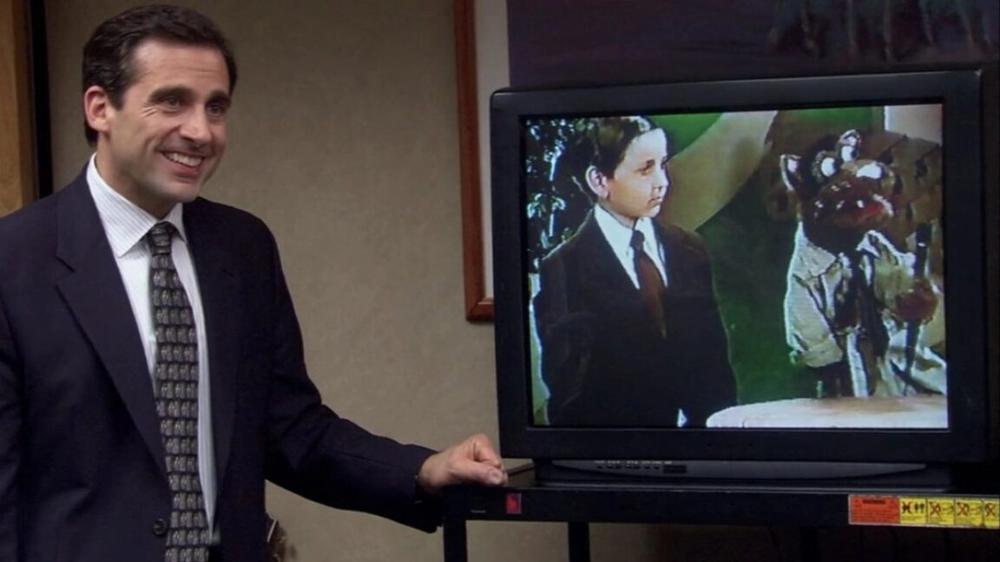We all know how to find our favorite shows and blockbuster films on mainstream streaming services like Netflix, HBO Max, and Disney+. But even as streaming has opened the door to millions of hours of on-demand entertainment, it can still feel like there’s nothing fresh or exciting to watch anymore.
If you agree, it’s time to check out some of the more niche streaming services available, where you can find remarkable content unlikely to be available elsewhere.
This article breaks down the best streaming services you likely aren’t watching. From cinematic masterpieces to guilty pleasures, these services offer refreshing takes on streaming that make online content bingeing feel new again.
Curiosity Stream
These days, it feels like facts are getting harder to come by. Curiosity Stream's focus on science, history, research, and learning is the perfect antidote to this problem. The streaming service offers documentaries to people who love learning and are looking for a reliable source of educational media with no sensationalism or political agendas.
Curiosity Stream is $5 per month or $40 per year for an ad-free, curated approach to documentary content. Launched in 2015 by Discovery Channel founder John Hendricks, the service offers “more new films and shows every week” and has pledged to produce even more original content.
It has been a while since cable channels like Discovery or The History Channel have been regarded as reputable documentary distributors. You can find swaths of so-called documentaries on other streaming services, especially Amazon Prime Video, but finding a quality documentary on mainstream streaming services often requires sifting through conspiracy theories, myths, and dubious arguments.
Curiosity Stream boasts content from respected names like James Burke, Brian Greene, and Neil deGrasse Tyson. Among Curiosity Stream's most well-known programs are Stephen Hawking's Favorite Places, a News and Documentary Emmy Award winner; David Attenborough's Light on Earth, a Jackson Hole Wildlife Film Festival award winner; Secrets of the Solar System, a News & Documentary Emmy Award nominee; and the currently trending Ancient Engineering: Middle East.
Curiosity Stream doesn’t regularly report subscriber numbers, but it said in March 2023 that it had 23 million subscribers. In May, parent company CuriosityStream, which also owns Curiosity University, the Curiosity Channel linear TV channel, and an original programming business, reported its first positive net income ($0.3 million) in its fiscal Q1 2025 earnings.
That positive outcome followed a massive price hike that saw subscription fees double in March 2023. So if you decide to subscribe to Curiosity Stream, keep an eye on pricing.
Mubi
Mubi earned street cred in 2024 as the distributor behind the Demi Moore-starring film The Substance. But like Moore’s Elisabeth Sparkle, there’s more than meets the eye with this movie-focused streaming service, which has plenty of art-house films.
Mubi costs $15 per month or $120 per year for ad-free films. For $20 per month or $168 per year, subscriptions include a “hand-picked cinema ticket every single week,” according to Mubi, in select cities. Previous tickets have included May December, The Boy and the Heron, and The Taste of Things.
Don’t expect a bounty of box office blockbusters or superhero films on Mubi. Instead, the spotlight is on critically acclaimed award-winning films that are frequently even more obscure than what you’d find on The Criterion Channel streaming service. Save for the occasional breakout hits (like The Substance, Twin Peaks, and Frances Ha), you can expect to find many titles you’ve never heard of before. That makes the service a potential windfall for movie aficionados who feel like they’ve seen it all.
Browsing Mubi’s library is like uncovering a hidden trove of cinema. The service’s UI eases the discovery process by cleanly displaying movies' critic and user reviews, among other information. Mubi also produces Notebook, a daily publication of thoughtful, passionate editorials about film.
Further differentiating Mubi from other streaming services is its community; people can make lists of content that other users can follow (like "Hysterical in a Floral Dress," a list of movies featuring females showcasing "intense creative outbursts/hysteria/debauchery"), which helps viewers find content, including shows and films outside of Mubi, that will speak to them.
Mubi claims to have 20 million registered users and was recently valued at $1 billion. The considerable numbers suggest that Mubi may be on its way to being the next A24.
Hoopla
The online and on-demand convenience of streaming services often overshadows libraries as a source of movies and TV shows. Not to be left behind, thousands of branches of the ever-scrappy public library system currently offer on-demand video streaming and online access to eBooks, audiobooks, comic books, and music via Hoopla, which launched in 2013. Streaming from Hoopla is free if you have a library card from a library that supports the service, and it brings simplicity and affordability back to streaming.
You don’t pay for the digital content you borrow via Hoopla, but your library does. Each library that signs a deal with Hoopla (the company says there are about 11,500 branches worldwide) individually sets the number of monthly “borrows” library card holders are entitled to, which can be in the single digits or greater. Additionally, each borrow is limited to a certain number of days, which varies by title and library.
Libraries choose which titles they'd like to offer patrons, and Hoopla is able to distribute content through partnerships with content distributors, such as Paramount. Cat Zappa, VP of digital acquisition at Hoopla Digital, told Ars Technica that Hoopla has "over 2.5 million pieces of content" and "about 75,000 to 80,000 pieces of video" content. The service currently has "over" 10 million users, she said.
Hoopla has a larger library with more types of content available than Kanopy, a free streaming service for libraries that offers classic, independent, and documentary movies. For a free service, Hoopla's content selection isn't bad, but it isn't modern. It's strongest when it comes to book-related content; its e-book and audiobook catalogue, for example, includes popular titles like Sunrise on the Reaping, Suzanne Collins’ The Hunger Games prequel, and Rebecca Yarros’ Onyx Storm 2, plus everything from American classics to 21st-century manga titles.
There's a decent selection of movies based on books, like Jack Reacher, The Godfather series, The Spiderwick Chronicles, The Crucible, Clueless, and The Rainmaker, to name a few out of the 759 offered to partnering libraries. Perusing Hoopla's older titles recalls some of the fun of visiting a physical library, giving you access to free media that you might never have tried otherwise.
Many libraries don't offer Hoopla, though. The service is a notable cost for libraries, which have to pay Hoopla a fee every time something is borrowed. Hoopla gives some of that money to the content distributor and keeps the rest. Due to budget constraints, some libraries are unable to support streaming via Hoopla's pay-per-use model.
Hoopla acknowledges the budget challenges that libraries face and offers various budgeting tools, Zappa told Ars, adding, "Not every library patron has the ability to... go into the library as frequently as they'd like to engage with content. Digital streaming allows another easy and efficient opportunity to still get patrons engaged with the library but... from where it's most convenient for them in certain cases."
Dropout
The Internet brings the world to our fingertips, but I’ve repeatedly used it to rewatch episodes of The Office. If that sounds like you, Dropout could be just what you need to (drop)kick you out of your comedic funk.
Dropout costs $7 per month or $70 per year. It's what remains of the website CollegeHumor, which launched in 1999. It was acquired by US holding company IAC in 2006 and was shuttered by IAC in 2020. Dropout mostly has long-form, unscripted comedy series. Today, it features 11 currently running shows, plus nine others. Dropout’s biggest successes are a wacky game show called Game Changer and Dimension 20, a Dungeons & Dragons role-playing game show that also has live events.
Dropout is for viewers seeking a novel and more communal approach to comedy that doesn’t rely on ads, big corporate sponsorships, or celebrities to make you smile.
IAC first launched Dropout under the CollegeHumor umbrella in 2018 before selling CollegeHumor to then-chief creative officer Sam Reich in 2020. In 2023, Reich abandoned the CollegeHumor name. He said that by then, Dropout’s brand recognition had surpassed that of CollegeHumor.
Dropout has survived with a limited budget and staff by relying on "less expensive, more personality-based stuff," Reich told Vulture in late 2023. The service is an unlikely success story in a streaming industry dominated by large corporations. IAC reportedly bought CollegeHumor for $26 million and sold it to Reich for no money. In late 2023, Reich told Variety that Dropout was "between seven and 10 times the size that we were when IAC dropped us, from an audience perspective." At the time, Dropout’s subscriber count was in the "mid-hundreds of thousands," according to Reich.
Focusing on improvisational laughs, Dropout's energetic content forgoes the comedic comfort zones of predictable network sitcoms—and even some offbeat scripted originals. A biweekly (or better) release schedule keeps the fun flowing.
In 2023, Reich pointed to the potential for $1 price hikes “every couple of years.” But Dropout also appears to limit revenue goals, further differentiating it from other streaming services. In 2023, Reich told Vulture, "When we talk about growth, I really think there’s such a thing as being unhealthily ambitious. I don’t believe in unfettered capitalism. The question is, ‘How can we do this in such a way that we honor the work of everyone involved, we create work that we’re really proud of, and we continue to appeal to our audience first?'"
Midnight Pulp
Mark this one under “guilty pleasures.”
Midnight Pulp isn’t for the faint of heart or people who consider movie watching a serious endeavor. It has a broad selection of outrageous content that often leans on exploitation films with cult followings, low budgets, and excessive, unrealistic, or grotesque imagery.

 Spider-Man: Brand New Day Set Photos Show Tom Holland Riding a Tank
Spider-Man: Brand New Day Set Photos Show Tom Holland Riding a Tank